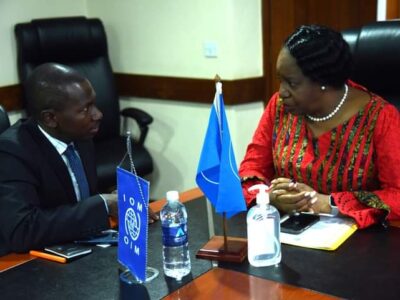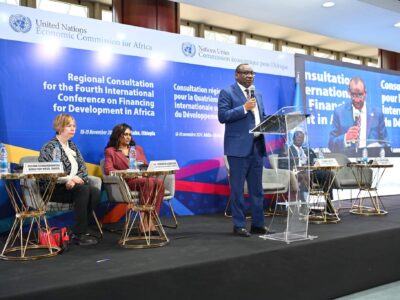The Zambian government is in talks with the International Monetary Fund (IMF) to secure additional financing under its Resilience and Sustainability Trust (RST), a programme designed to assist countries in building climate resilience and ensuring sustainable growth.
A key requirement of the RST is that a country’s existing IMF program must have a minimum duration of at least 18 months remaining.
Zambia’s current IMF-supported programme is set to expire at the end of next year, meaning the country may need to request an extension to qualify for the new funding.
Finance and National Planning Minister, Situmbeko Musokotwane, announced these discussions on Wednesday on the sidelines of the World Bank and IMF annual meetings in Washington.
Under the trust’s regulations, Zambia’s potential funding could be capped at approximately US$1.3 billion, with terms of a 20-year maturity and a grace period of 10 and a half years on principal payments.
Read more: Musokotwane pushes for aggressive Public-Private partnerships at IMF, World Bank meetings
“We are talking to the management so that we can expedite this as quickly as possible,” Musokotwane said.
Musokotwane stressed the urgency due to Zambia’s ongoing climate crisis.
He highlighted the importance of concessional funding for infrastructure projects, particularly dams, which would improve water storage capacity.
Musokotwane further disclosed that Zambia was exploring a debt-for-nature swap as a strategy to alleviate its foreign debt obligations.
Although the plan is still in the preliminary stages, this form of debt restructuring, known as a “debt-for-nature swap,” involves forgiving a portion of a developing nation’s external debt in return for commitments to conservation and climate protection.
Countries such as Belize, Ecuador and Gabon have utilised similar mechanisms to fund environmental initiatives.
The need for new financing options comes as Zambia faces significant economic challenges.
The IMF recently revised Zambia’s economic growth forecast to 1.2 percent from 2.3 percent, citing the impact of a severe drought affecting the region, which the United Nations described as the worst in over a century.
“We are thinking about it very closely,” Musokotwane said of the debt-for-nature swap, indicating that Zambia was working on a framework for operationalizing funds specifically targeted at environmental protection.
In light of these challenges, the government’s consideration of innovative financing mechanisms, such as the RST loan and debt-for-nature swap, could provide Zambia with essential resources to address climate change and reduce its debt burden.
WARNING! All rights reserved. This material, and other digital content on this website, may not be reproduced, published, broadcast, rewritten or redistributed in whole or in part without prior express permission from ZAMBIA MONITOR.












Comments